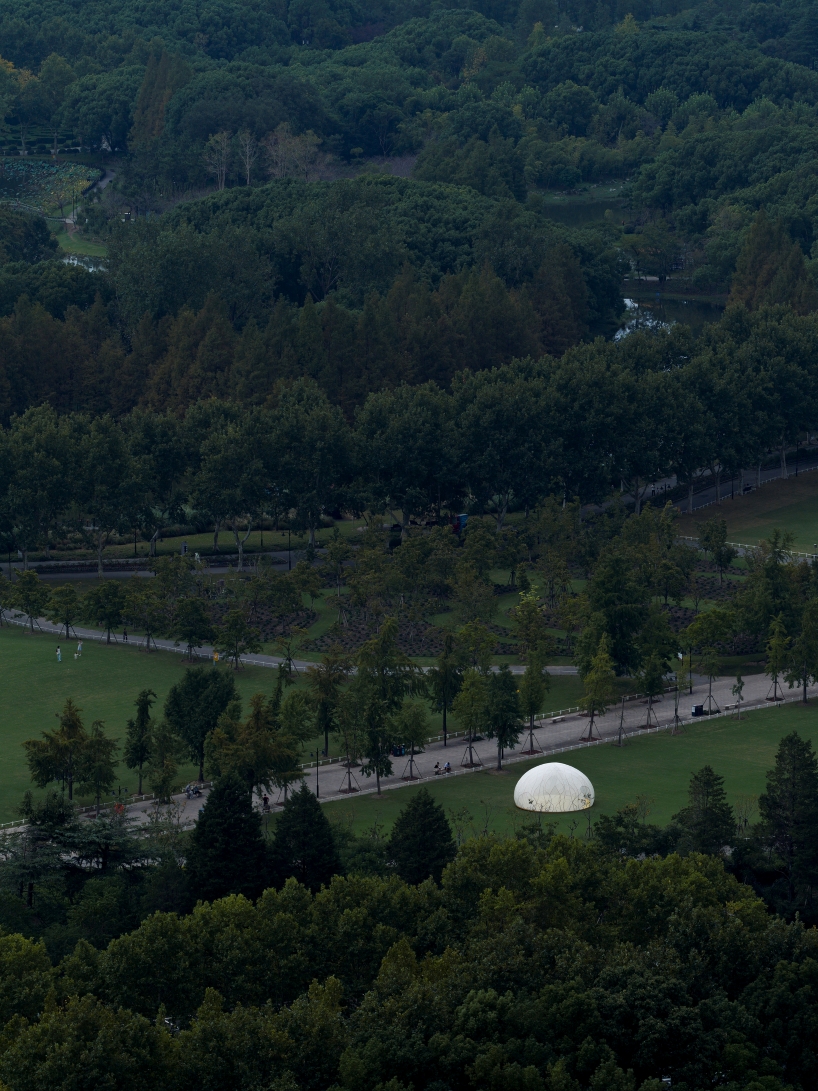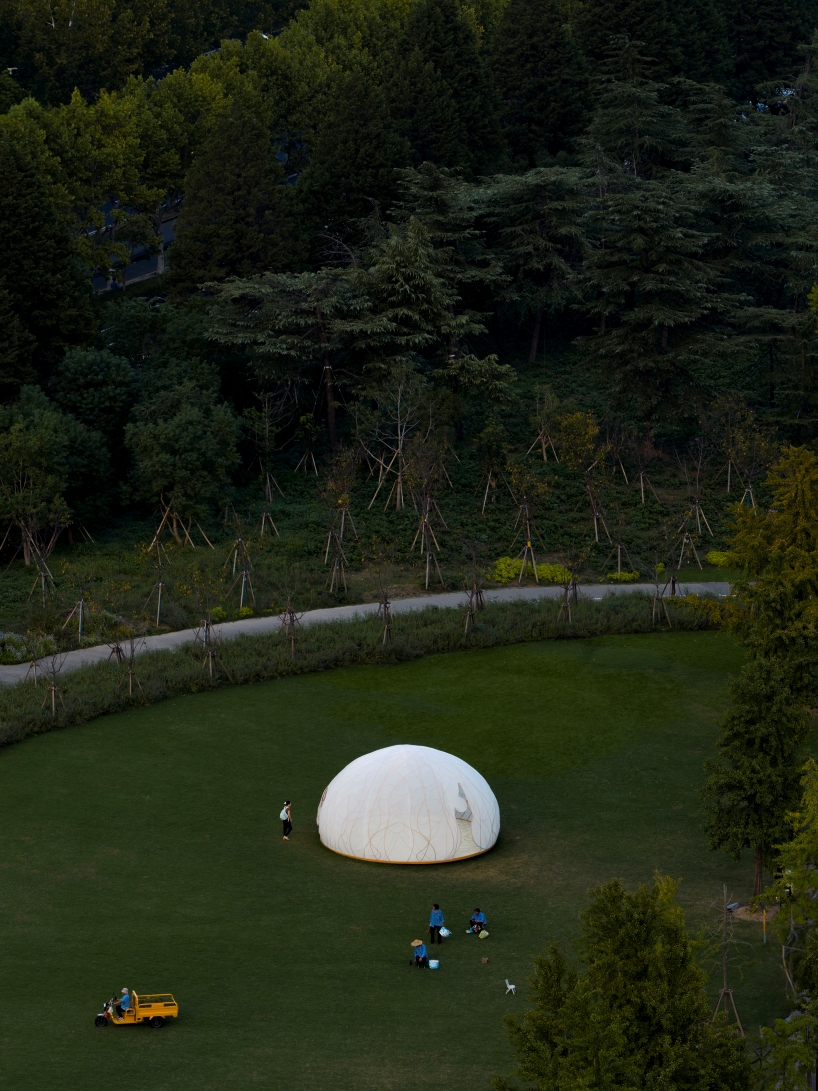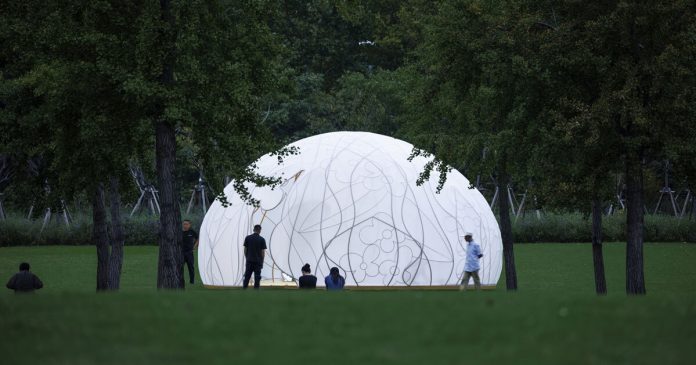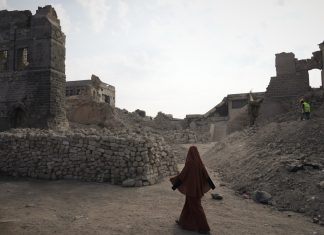HCCH Studio weaves osmanthus motifs into translucent dome
Osmanthus Moon is a temporary public art installation by HCCH Studio, created to mark the traditional Chinese Mid-Autumn Festival. The project references the osmanthus flower, an emblematic plant associated with the season, and establishes a dialogue with the action paintings of a folk Zao Hua (stove flower) artist, a practice recognized as an element of intangible cultural heritage.
Located on the semicircular lawn of Century Park in Shanghai, the pavilion takes the form of a translucent dome reminiscent of a full moon. Its structural framework integrates stylized osmanthus motifs into a bronze lattice resembling intertwined vines. A lightweight, elastic fabric is stretched across the framework, forming a continuous, illuminated surface. The resulting form explores the intersection of traditional patterning and contemporary construction methods.

all images by Guowei Liu, PSA
Osmanthus Moon explores geometry, illumination, and heritage
The design references the ornamental language of the Vienna Secession while drawing on the geometric clarity of Buckminster Fuller’s domes. On the ground, the Zao Hua artist’s painted osmanthus patterns correspond to the bronze framework above, establishing a spatial and visual relationship between movement and structure, craftsmanship and fabrication.
Visitors enter through two irregular openings that lead to an enclosed interior space. During the day, filtered daylight produces a diffused glow across the fabric surface, creating a soft, evenly lit environment. At night, internal illumination transforms the pavilion into a semi-transparent volume defined by shifting shadows and gradients of light. Commissioned to Shanghai-based practice HCCH Studio by the Power Station of Art in Shanghai, Osmanthus Moon was presented as a twelve-day installation, serving as both a seasonal observance and an exploration of the relationship between natural motifs, material technology, and cultural continuity.

Osmanthus Moon by HCCH Studio celebrates the Mid-Autumn Festival through architecture and light

the installation reinterprets the osmanthus flower, a seasonal symbol of autumn in Chinese culture






